Israel’s thriving innovation scene is (slowly) seeing more women innovators taking leadership roles.
On a global level, women remain underrepresented in these sectors. In Israel, specifically, women hold just 12 percent of top positions at companies traded on the Tel Aviv-125 Index and only seven percent of executives in technology companies are women, according to a Haaretz report.
The journey for women to a more gender-balanced world is not an easy one but there are a growing number of CEOs, CTOs, founders and overall, amazing women, who are showing that statistics can be changed.
This International Women’s Day, NoCamels chose to celebrate women innovators in cybersecurity, data science, tech policy, blockchain, health-tech, social impact tech, ed-tech and tech investing arenas in Israel.
The theme of International Women’s Day 2019 is Balance for Better: a balanced world is a better world.
We asked 10 women in senior leadership roles five questions on what inspires them, why they love what they do, the worst advice they got on their journey to the top, glass ceiling barriers and tips for the next generation of young women.
These are 10 women to watch.
Dr. Kira Radinsky, Director of Data Science, eBay
Dr. Kira Radinsky is building next-generation machine learning solutions that will transform eCommerce. She gained international recognition for developing predictive algorithms that recognized the early warning signs of globally impactful events, such as disease epidemics and political unrest. Radinsky holds a visiting professor position at the Technion focusing on the application of predictive data mining in medicine.
Why do you love what you do?
I love the fact that every day we are doing something that before was considered impossible. Even if we fail – it feels amazing that we are pushing the boundaries of science forward.
What woman inspires you and why?
Marie Curie – besides being the first woman to win a Nobel Prize, the first person and only woman to win twice, and the only person to win a Nobel Prize in two different sciences, the first woman to become a professor at the University of Paris — she was dedicated to progressing the world of science while identifying discoveries that change the lives of all of us. My mom used to say that we all have the same 24 hours of a day that Marie Curie had – so there’s nothing to stop us from doing great things in our lives.
What is the best decision you’ve ever made?
The best decision was to pursue the hard path in research rather than follow the safe path. Many types of research follow the safe path for a PhD – publishing incremental results rather than taking a risk on non-conventional research – but risking of not publishing. I believe the second choice has led me to what I am today.
What advice would you give to your younger self, when you just entered the career world?
One of my commanders in the army used to say that he hires only people that believe everything is possible and then teaches them that everything has a price. He believed that the first is impossible to teach – therefore one must identify those people. The second is about identifying the price of perfecting the solution and getting quickly into the market. Sometimes many solutions are good enough and bring value before reaching perfection. The advice to myself would be to understand the value in everything rather than chase perfection.
What was the worst advice you were ever given?
Follow the safe path for success.
Adv. Limor Shmerling Magazanik, Managing Director of the Israel Tech Policy Institute, Senior Fellow at the Future of Privacy Forum, Lecturer at the Hebrew University Jerusalem and IDC Herzliya
Forbes named Adv. Limor Shmerling Magazanik a “Warrior” in the magazine’s “World’s Top 50 Women In Tech” list. Magazanik is an expert in data legislation, regulation, and protection with a background in both the public and private sectors.
Why do you love what you do?
I’ve loved what I do since the start of my career in technology policy. I have not had a single boring minute, and I feel I get a real chance to make an impact on society.
What woman inspires you and why?
Virginia Wolf, who in a very different time for women, had the courage to demand a room of one’s own, and speak her mind publicly. I also adore her literary talent.
What is the best decision you’ve ever made?
To keep changing occupation and workplaces until I found the right fit. And then leaving that to start another path.
What advice would you give to your younger self, when you just entered the career world?
Every day do something that scares you
What was the worst advice you were ever given?
“Let your work speak for itself.”
Esther Barak Landes, Advisory Board, Asana Bio Group
Considered one of the most prolific tech deal-makers in Israel, Esther Barak Landes has over 20 years of experience in building and investing in technology companies. She makes it a priority to support women’s empowerment through education and business opportunities.
Why do you love what you do?
I love innovation, creativity and entrepreneurship. It is great fun to meet and hear from creative people who are willing to dedicate their lives to fulfilling their dreams. The world is changing at an incredible pace and it inspires me. I recently joined the Asana Bio Group, which was started by three young guys who hope to create cannabinoid-based treatments for the women’s health field. It gives me hope that people like these three founders, who aren’t even married and don’t have kids, are intent on finding solutions for women’s health problems.
What is the best decision you’ve ever made?
Every day I try to make the decision to put my guilty conscience at rest about home, family, work, and life. On the days that I succeed, I feel that is the most important decision I have made.
How hard is it for a woman to make it to the top?
The ratio of women to men is about equal in society. Same goes for university student populations. But after university, women invest just 2 percent of Venture Capital Dollars and only 7 percent is invested in female founders. Are women less talented? No! Are women less ambitious? Also no! Do women have different priorities? It would seem family is highly important for women, and they take family responsibilities on themselves.
Women can get key roles just like men can, though through different paths. It is important to understand that there are differences but that these differences can be and are positive. When these different paths entwine, they create a better, more effective and more successful society.
What is the biggest challenge for the next generation of women?
The challenge is to change the division of roles in the home so that there can be a change in the workplace. For example, to allow men to take maternity leave together or after the women, to allow men to leave work earlier so that they can take care of the children at home. A different division of responsibility at home will lead to change in the workplace.
What advice would you give to your younger self, when you just entered the career world?
I would tell myself not to be afraid of anything, to be steadfast and to plan ahead. To succeed you need to develop special skills and thus planning is critical. Beyond that, I would say to myself that you only live once and it is important to maintain balance in life. It is also important to surround yourself with people who are smarter and better than you are, and people who will complement and help you reach places you could not reach alone.
Dr. Shimrit Tzur-David, CTO and co-founder of Secret Double Octopus, Senior lecturer, Department of Software Engineering Azrieli – College of Engineering Jerusalem
Globes named Dr. Shimrit Tzur-David as one of Israel’s leading entrepreneurs. She has a PhD in Computer Science and is an expert in networking and security. Her cybersecurity company is developing a password-free, key-less authenticator.
Why do you love what you do?
I love the mix of what I do – as a CTO and a lecturer. I truly feel that I am doing real things that will help keep the communications and information security sectors safe. I help keep our information safe from the “bad guys” who try to steal and ruin our lives. Cybersecurity is a never-ending challenge in the face of hackers and we’re helping companies stay one step ahead of them. As for my role as a lecturer, I love teaching and guiding the next generation and watching them grow and move forward.
How hard is it for a woman to make it to the top?
It really depends on how much self-confidence a woman has and the environment in which she is in. I don’t feel I have any barrier to succeed in what I do. I remind myself to act confidently and not be scared of anything or anyone. I believe the environment will react to how you see yourself. When I speak to students, I always tell them how great they are and push them to bring their confidence forward and tell them that success will follow.
What woman inspires you and why?
I feel that in my generation, there weren’t enough role models. (Tzur-David is 41 years old.) And I believe that’s why in my generation there are few women in leading roles. Today, I’m really happy that the younger generation has a range of role models of super intelligent, active women in high-tech.
What is the best decision you’ve ever made?
On a personal level, when I finished my first degree it was very tempting to go and work because I could have earned a good salary right away. To put it on hold, to invest more in myself, to continue learning a second degree and then my PhD was not the easiest decision but it was also the most appropriate decision.
In terms of the company, we had to make a pivot and it was not an easy decision to basically “throw away” a year’s worth of work. It was very scary to change direction in what we were doing but looking back today, it was the smartest thing we could have done.
What is the biggest challenge for the next generation of women?
I think if you look at the key roles today in Israel, and in general, there are a lot of mediocre people in the positions. This is not a bad thing. Not everyone can be exceptional. The day when “unexceptional” women are in these positions will be the day we’ve reached equality in the workplace. Today, when a woman reaches a key role in a company, she still has to be more than exceptional. And this is not the case amongst the men. When women and men can both get key roles with the same experience, we will have achieved equality.
Lihi Segal, CEO and Co-Founder of DayTwo
In 2015, Lihi Segal co-founded a startup to bring personalized health solutions based on the gut microbiome into the consumer mainstream. She has held senior roles in a number of businesses. Segal has an LLB from the Tel-Aviv University and an MBA from Northwestern University.
Why do you love what you do?
A number of years ago, a good friend of mine lost his life to the diabetes battle at the young age of 49. At that time, I remember thinking how much I wished there was something I could have done to help him find a cure and to overcome his disease. No matter how stressful my day is, I know that I wake up and work towards a positive trend that is set out to fight the metabolic epidemic that has taken over the modern world. I love what I do because at the end of the day, there is no better feeling than knowing that I have a leading role in helping people find a healthy solution to an unwavering battle with chronic disease.
What do you think is the most significant barrier to female leadership?
I was raised by a woman of steel. A mother, an entrepreneur, and a self-made woman. As an independent owner of her own business in the 1970s – she had it hard! Living in a world that was dominated solely by men.
When I think back on those days and how determined she was, how much she was able to plunge through all of the noise and make it the top, virtually everything seems simple in comparison. My mother taught me to value my strength as a woman, but to never use it as an excuse for extenuating circumstances. At the end of the day, I think that the moment we – men and women – collectively forget about our traditional household roles and equate our work-life balance values, we will be able to overcome all the barriers standing between us and leadership positions.
What woman inspires you and why?
That’s a tough one – there are so many women from whom I gain inspiration! I suppose if I had to choose one, Sheryl Sandberg. I was really touched and impressed by her storytelling in “Option B” – her ability to be such a strong woman while exposing a vulnerable topic of grief and failure makes her all-the-more humane and authentic in my eyes. She is resilient, but more importantly, inspires others to find resilience in their lowest, darkest place. Her words “grounded hope”—the understanding that if you take action you can make things better” are greats lesson in survival and the ability to overcome and come out stronger than before.
What is the biggest challenge for the next generation of women?
To thrive in work and personal life with the classic model of parenthood and marriage. Today everything we do and experience is ephemeral and our lifestyles make it increasingly difficult to maintain a picture-perfect marriage with 2.5 kids and a golden retriever while maintaining our sanity and excelling at everything we choose to do.
What advice would you give to your younger self, when you just entered the career world?
I wish I had known that “it’s never as good, it’s never as bad.” This is my mantra to this day and I have to say – it’s tough work!
Sign up for our free weekly newsletter
SubscribeAs a CEO and founder of a startup, as I am sure many others can relate, life is often a rollercoaster. Sometimes you leave a meeting feeling like you’ve just landed the best deal of your life and nothing ends up developing out of it, while other times the CEO of the company you are striking a mega-deal with resigns just before putting the ink on paper and you feel like the world is coming down on you, but in the end everything works out for the best.
Finding that inner peace of realization that when taken in stride, everything happens for a reason was a huge transformation for me over the years and something that was tough to overcome when I first entered the career world.
What was the worst advice you were ever given?
I’ve got to say I can’t recall ever getting bad advice. This could only mean one of two things: either I surround myself with the best possible mentors and friends who would never give me bad advice, or I was able to take any bad advice I received and spin it for the better. I’d like to believe both are true and hope to hold fast to both of those options for many years to come.
Omri Boral, Co-founder and CEO, TechForGood
Omri Boral has made it her mission to prove that positive societal impact and financial returns can be harmonious bedfellows. She is currently writing her PhD on hybrid financial instruments and impact investment models.
Why do you love what you do?
I love it because I feel it’s focused on real impact in the world. That it is making a difference. I love it because, together with my partner Nir Shimony, I get to develop new ideas and methods constantly and work with new organizations and people. What everyone in the impact industry share – is great passion for what they do – and I love that.
What do you think is the most significant barrier to female leadership?
For me, it’s around where I focus my energy. When I feel I’m being mistreated at meetings or processes because I’m a woman, and unfortunately it happens quite a bit, I become almost totally focused on that. And I am missing out on the meeting itself, on making myself valuable there, and definitely on one of the most important things for me – which is enjoying what I do. I can’t say I have found the best way to deal with this and I see this as a barrier, for myself, and for other women as well.
What woman inspires you and why?
My grandmother, Shiphra Ziv, who managed her life with courage to do what is right in her eyes and not via what society dictates, who started her career at the age of 45 and became a special-ed school manager, volunteered in formal and informal ways, empowered women all around her, up to her final years. She was a role model for me as a woman who was a leader in her own way.
Lately, I’ve been more interested in leaders who have a positive, meaningful influence on others and not necessarily those who are famous, who are what we are used to tag as successful. There is something priceless about people like my grandmother, who change the world for dozens of people and don’t have or need the recognition.
What advice would you give to your younger self, when you just entered the career world?
It is all about people. Look around you, find the people who share your values and work hard to maintain relationships with them. These people are key to open up opportunities for you, as well to create them together with you. I’m not talking about networking – I’m talking about establishing real relationships, almost friendships, with people who are like-minded and share your values, but who might have different preferences or approach to things – which would make them more interesting for you to learn from. Just know that it’s hard work! It takes time, effort and sensitivity to manage these relationships.
What was the worst advice you were ever given?
Focus on one thing. It may not be bad advice for others but it took me a while to understand that for me, it is. It was tremendously difficult for me to try to choose one field to study, or one issue to work on. I now realize that I truly need that “mess” of working with and on various activities at the same time. I think it’s just about finding what makes sense for you, but these hardcore norms about what you need or don’t need to be looking for are sometimes just getting in the way of you structuring the right balance for yourself.
Karina Odinaev, Co-founder and COO, Cortica
Karina Odinaev co-founded Cortica, a company developing “next-generation” AI technology that allows machines to work without the need of human-level management. Odinaev has extensive experience in product characterization and development for high-dimensional and high-volume data processing systems.
Why do you love what you do?
We, at Cortica, are dealing with how artificial intelligence mimics the learning processes of our brain. AI can really reshape the world in so many different ways — autonomous vehicles, smart cities, security, medical imaging, retail, robotics and even the financial market. I am proud to be part of this revolution.
What do you think is the most significant barrier to female leadership?
Women excel in many qualities that are the key to leadership such as emotional intelligence, problem-solving, communication, etc., so I personally believe we are natural leaders. I think that the barrier is mostly psychological. In the current environment, women are not encouraged to lead and the importance is not emphasized enough. In many cases, we perhaps somewhat lack the confidence in our ability, and this is easily projected to people around us. We are, however, on the right track, and the education system and parents today are more aware of the situation, so hopefully we are about to discover the next generation of confident female leaders.
What is the best decision you’ve ever made?
I have been fascinated by the mysteries of the brain and the gaps between the brain’s capabilities and computers from a very young age. At the Technion, I focused my research in the area of computational neuroscience, to understand how we can mimic brain architecture and learning processes to try bridging these gaps. After four years of working with a live cortex tissue of a rat, we started seeing amazing results and were faced with one of the most important decisions: should we publish the research and obtain the PhD, or should we stop the research, file for patents, and found a company. The rest is history…
What advice would you give to your younger self, when you just entered the career world?
Persistence is key to building a successful company. There will always be challenges, and everything that can go wrong – will go wrong. Things that look easy initially will prove to be not that trivial. The key is not giving up and not losing faith, but keep pushing and pushing. In 2007, when Cortica was founded, AI was sort of a curse, and almost no one could really see why we need it, and what can we do with it other than looking up recipes, but we kept moving forward, looking for visionary partners, identifying the key applications, pivoting, improving the technology – never giving up.
What was the worst advice you were ever given?
Focus. This is a mantra preached by the VCs and industry leaders. It may be true in many cases however it shouldn’t always be accepted and executed blindly. Cortica, for example, has a generic AI technology that can be implemented in multiple verticals, so we felt it was wrong for us to focus on one product. The business model we eventually adopted is to incubate products in Cortica and once they are mature enough, technology and business wise, spin them off and bring a dedicated management team of experts from the relevant market/vertical.
Yael Rozencwajg, Founder and CEO, Blockchain Israel
Yael Rozencwajg leads the largest organization in Israel dedicated to blockchain solutions. Because blockchain technology is still relatively new, Rozencwajg believes that women can – and should – take a leading role in the innovation of this technology.
How hard is it for a woman to make it to the top?
Everyday I’m learning about the rapidly changing world and at the same time how outdated cultural norms are preventing many people from thriving personally and professionally. Too many studies describe male entrepreneurs as “promising” and young female entrepreneurs as “inexperienced.” Women are still underepresented in media, government, and at the highest levels of almost every industry. It’s changing, but too slowly, and it creates disparity.
Since I started my career 20 years ago, I’m focused on helping dismantle barriers to support diversity and equality.
What is the biggest challenge for the next generation of women?
The fact that there is no country on Earth where women have achieved true equality indicates it is absolutely essential to rebuild trust and believe in diverse culture. I meet so many strong, hardworking women who want nothing more than access to the same rights as men, including the simple notion to be heard or opportunity to get a job.
It would be an understatement to say the next generation of women won’t face big obstacles and disadvantages but what we can say is that the upcoming years will reveal how much we are incredibly resilient. Reinforcing the importance of education as it will ultimately about helping women get the same opportunities as men. We urgently need institutions and companies to commit to being open about what women need and what will be their return of investment in terms of diversity and ultimately growth and development.
What woman inspires you and why?
I’m inspired by so many people both women and men. Over the last 100 years, women’s roles and rights have dramatically changed beyond all recognition. One thing that has remained quite constant is the sheer number of awe-inspiring women that exist all over the world. Those achieving to change old institutions, those winning battles, those achieving the impossible, those whose controversy resulted on being highly recognized, those who became mainstays and references for future generations.
What is the best decision you’ve ever made?
There is an old stereotype about women leaders that says, we’re either kind, generous, and ineffective or cold, selfish, and successful. A big part of my journey is a reminder of just how wrong that is. As a woman entrepreneur, we can work and win and still support and empower those around us. But just like everyone else, you can fail. Many decisions I’ve made were when I felt uncomfortable in a situation or worried but then I knew I was in the right place. The latest decision I’ve made was to simplify my life by accepting a failure that’s finally here to open new odds.
What advice would you give to your younger self, when you just entered the career world?
Learn that there’s no moment more important than the present, at the exact moment that a being is extinguished and to continue and reinforce the work begun. Also, I’ve learned that there’s light even in the darkest places.
Moran Ran, CEO and co-founder, Atvisor
Moran Ran is CEO of a company developing an AI-based digital advisor for assistive technology consultations. Today, only 1 out of 10 people get the assistive technology they need. Ran’s team has developed a platform to help healthcare and rehabilitation professionals and people with disabilities access assistive technology products more efficiently.
Why do you love what you do?
My multidisciplinary work combines business thinking and management skills, brainstorming on professional issues from the fields of care and rehabilitation, creating a social vision and navigating public policy regarding people with disabilities and their rights. There are constant challenges in integrating technological innovation with health and wellbeing. All these elements make my professional work varied and challenging.
What is the best decision you’ve ever made?
Being a mother – a personal journey and a deep sense of belonging that gives me the power to do everything I do.
What is the biggest challenge for the next generation of women?
I would like to see it not as a challenge but as a mission of speaking up — more women are cracking the glass ceiling and showing others the way, teaching it is possible, making others hear their messages, opinions, views, all around the world, crossing ages, geography and profession. This, in time, must become a basic common truth in our lives rather than a phenomenon.
What advice would you give to your younger self, when you just entered the career world?
Understand how fortunate you are to have grown with living examples of equality and respect, women power and leadership around you. Embrace them as they will be your guide along the way.
What was the worst advice you were ever given?
The worst advice I was given was to not get emotional as it does not help business. The best moves I have made as a CEO, and the steps that were most beneficial for the company, were a result of my passion in what I do, excitement with what I believe and a solid feeling of being close to the people I work with. With that, you can move mountains.
Galya Halaui, Co-founder and Managing Director, A+Kids
Galya Halaui combines artificial intelligence with an educational platform to drive kids forward in their first years of schooling.
Why do you love what you do?
I love to do what I do because each day brings with it new challenges. My role combines content, technology and managerial issues that make my daily life at work both diversified and challenging.
What woman inspires you and why?
The woman that inspires me is Oprah Winfrey. She made her way to the top, she controls her own brands and she has an international presence on different media platforms.
What is the best decision you’ve ever made?
The best decision I ever made was to choose my partner in life.
How hard is it for a woman to make it to the top?
In most Western countries, it shouldn’t be hard for women to make it to the top as long as they adjust their daily life to the average man’s daily schedule – meaning if you are a married woman, and perhaps even a working mother with young kids, you are expected to be accessible in addressing any work issues/meetings/phone meetings at flexible times and be able to attend any international meetings/seminars and conventions as required.
However, if as a working mom you would like to take a significant part in your kids’ life, you can still manage your career successfully with the right work environment and with the appropriate support from your significant spouse and extended family. My experience is that in such cases, both the kids and the working place will gain even more. Happy employees are proven to be more proactive and significant to their organization, and happy parents bring up happy kids.
What is the biggest challenge for the next generation of women?
I think the biggest challenge for women both today and in the near future is to accept the fact that women’s minds are equally able to achieve the same goals as men’s minds. We need to make sure that, as women, we are surrounded by people who empower us. To make sure we, as women, are part of organizations that support proactivity.
Related posts

Editors’ & Readers’ Choice: 10 Favorite NoCamels Articles

Forward Facing: What Does The Future Hold For Israeli High-Tech?

Impact Innovation: Israeli Startups That Could Shape Our Future



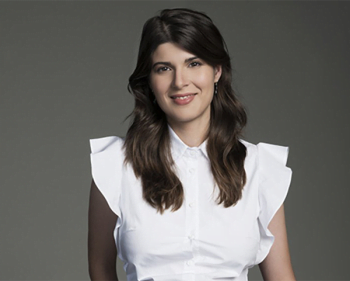
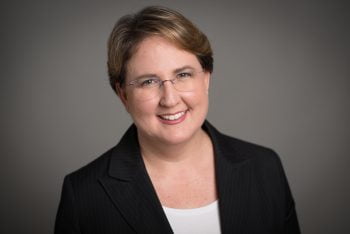
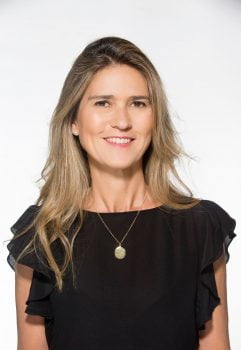
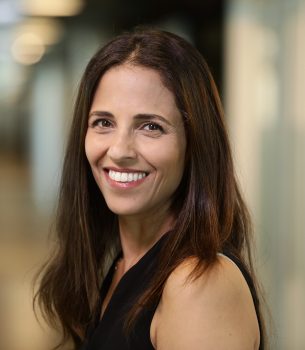
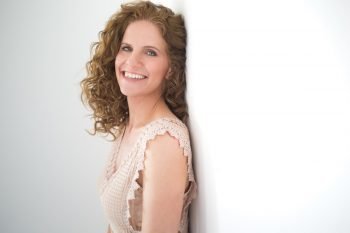
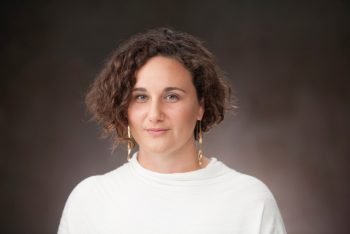
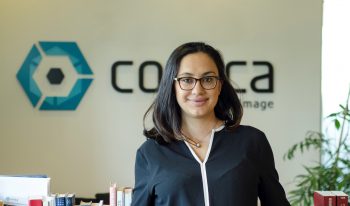
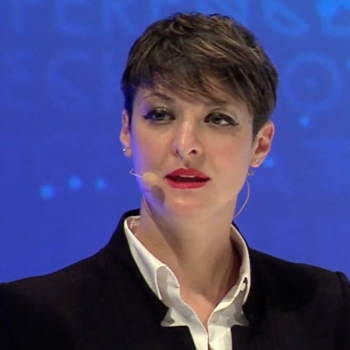
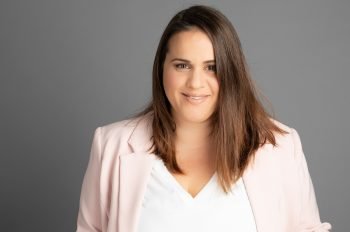
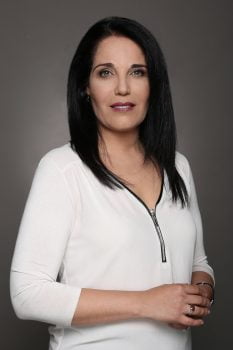

Facebook comments